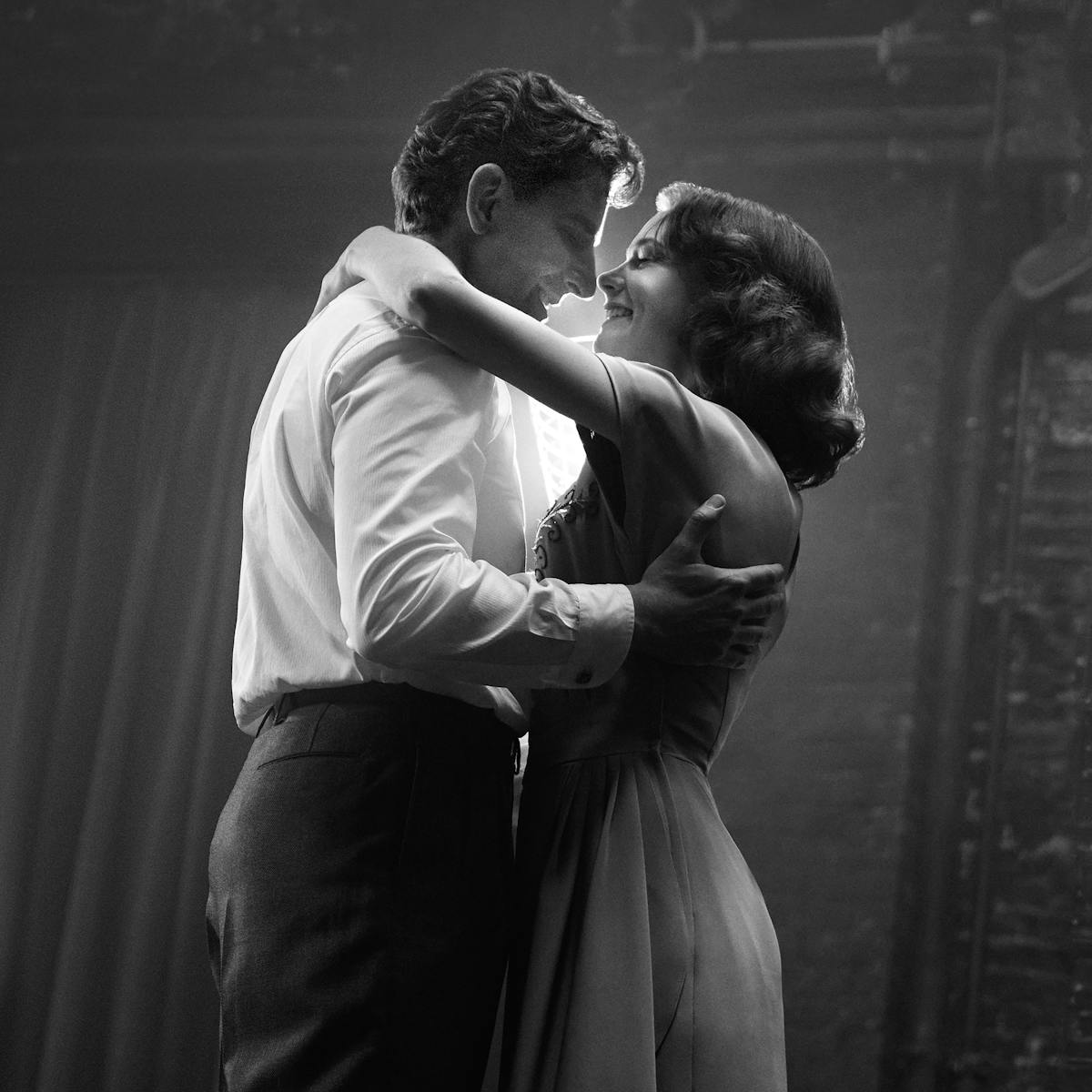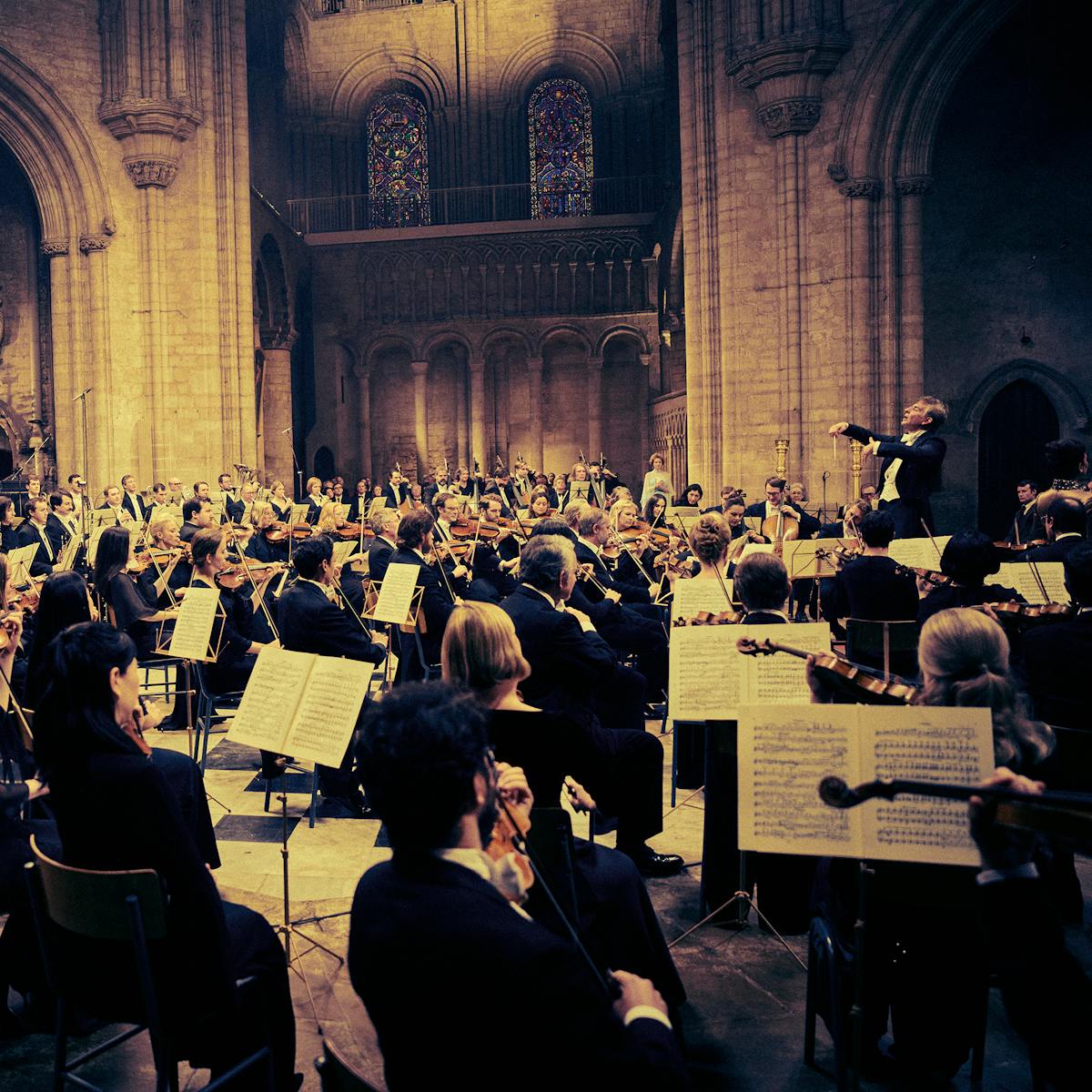The actor on her once-in-a-lifetime role in Bradley Cooper’s sweeping sophomore film, Maestro.
Known for her mesmerizing work in such highly acclaimed films as Promising Young Woman and An Education, three-time Oscar nominee Carey Mulligan has long since proven herself a leading talent of her generation. From breathing vibrant life into literary characters in Pride and Prejudice, Never Let Me Go, and as Daisy Buchanan in The Great Gatsby to exploring quiet darkness and vulnerability beneath the surface in films like Drive, Wildlife, and Joel and Ethan Cohen’s Inside Llewyn Davis, the actor’s career has been defined by her dynamic range. Still, her multifaceted performance as actor, artist, and activist Felicia Montealegre Cohn Bernstein in Bradley Cooper’s sweeping drama Maestro feels utterly revelatory.
In the meticulously crafted new film, Cooper’s directorial follow-up to 2018’s blockbuster A Star Is Born, Mulligan’s Felicia finds her soulmate in legendary conductor, composer, and teacher Leonard Bernstein. Drawn to one another from their first meeting, Felicia and Leonard embark on a life together, welcoming three children and enjoying untold career success. But as the years pass, they also weather painful episodes of infidelity and illness, trials that test them but never tear them apart. “I do think it’s a really epic love story — the boundaries that they have to cross, particularly in that time, to make it work and the dedication to making it work in spite of everything,” Mulligan says.
To prepare for the shoot, Mulligan met extensively with Montealegre and Bernstein’s relatives, including Lenny and Felicia’s three children, Jamie, Nina, and Alexander Bernstein, whose insights proved invaluable. Cooper and Mulligan’s quest to authentically replicate Felicia and Leonard’s bond moved the siblings, who offered the actors unfettered access to the family home and key personal effects that belonged to the couple.
In return for their unfailing generosity, Mulligan says she felt a true obligation to bring Felicia to life in a way that would honestly capture her many complexities and contradictions. “I felt an absolute imperative for the kids to be happy with the portrayal of their parents, but not a heaviness,” Mulligan says. “They were so thrilled that the film was going to be about Felicia as well — I think they imagined it would just be a straight Lenny biopic, as most things are. But when Bradley said, ‘I want to make a film about your parents,’ I think they were really moved by that.”
During a recent appearance at the Paris Theater in New York City, Mulligan spoke with Josh Horowitz, host of the Happy Sad Confused podcast, about the remarkable experience of making Maestro.
An edited version of the conversation follows.

Carey Mulligan's many roles over the years
Illustration by Ignasi Monreal
Josh Horowitz: This was a true passion project for Bradley Cooper. Were you all in from the start? What did you need to hear from Bradley to get you passionate about this project?
Carey Mulligan: Well, I was doing a play called Girls & Boys Off Broadway, and he came to see that — so that was 2018. It was the first preview. I was doing the show, and it’s 90 minutes without leaving the stage, but between the scenes, the scrim comes up and down. In one of the last transitions, the scrim hit me on the head. Because the lights were up, I just carried on. I finished and walked offstage, and I completely lost it. I thought I had a serious head injury. I was dazed, and I felt sick. I was sitting on my dressing room floor in this little theater, sobbing. I didn’t trust myself to stand up because I thought I was going to pass out. Someone came in after about five minutes and said, “I’m so sorry, but Bradley Cooper’s outside.” I was a wreck, [but] I said, “Bring him in.” Bradley gets down on the floor and looks me in the eyes, And he was like, “I’m taking you to the hospital.” So, he took me to the hospital, much to the delight of the nurses. Then the next day, he asked if we could have coffee about a thing he was working on.
Was there a script? Did you know that this was not a Lenny Bernstein biopic as much as it was a portrait of a marriage?
CM: He said that right off the bat. There was no script, but he did say that he wasn’t interested in making the sort of [traditional] biopic. And he certainly wasn’t interested in the “wife to the great man” thing. But there was no script, and A Star Is Born wasn’t out yet. So, he said, “Do you want to see my movie?” Obviously I did, so I went to go see that. I just remember thinking, Oh my goodness, I cannot believe I get to be in his next film.

Felicia Montealegre Cohn Bernstein (Carey Mulligan)
What did you key into when you started to get into the process of the research, working with the family? Did you have your way in right from the start, or did it take some time to understand what your approach was, who Felicia was?
CM: There ended up being so many different ways in. First of all, the way that people referred to them was always “Lenny and Felicia.” It wasn’t just Lenny. So, he was the icon, and he was this huge figure in the classical music world and in culture generally, but she was very much a part of it. The two of them came as a pair. Actually, when they first met, she was more famous than he was. She had a real star career in her own right and was doing TV, films, and was on her way to quite an interesting career onscreen and in theater. But she was more known for the screen stuff. What struck me immediately was the idea of these two artists together, one of whom is a good, maybe great actress, and one of whom is this once-in-a-generation, touched-by-God kind of artist, and what that must have been like.
The way that Steven Spielberg, who’s one of our producers, described it to Bradley when they first started working together [was] that Felicia made Lenny her art. That was a really interesting key into it. She decided that rather than [pursue] her own acting pursuits, her art in life would be him and making him everything he could be . . . You can read the letters they wrote to each other, and she very clearly writes in [one] letter, “You are a homosexual and may never change, but I believe,” something along the lines of, “we can still make a marriage without me sacrificing myself in the altar of L.B.” So, she was clear from the beginning that she could do it and wanted to do it without being a martyr.
The way that people referred to them was always 'Lenny and Felicia.' It wasn’t just Lenny. So, he was the icon, and he was this huge figure in the classical music world and in culture generally, but she was very much a part of it. The two of them came as a pair."
Carey Mulligan
The Bernstein family wanted to be a part of this and provided you with some access that seems unprecedented. Can you talk about your relationship with Lenny and Felicia’s children?
CM: They opened up everything. In 2019, Bradley said, “Yannick Séguin wants us to go to Philadelphia and narrate Candide with the Philadelphia Philharmonic.” I didn’t know what that even meant because I was like, “How do you narrate an opera? I thought it was all singing.” But I said, “Absolutely, of course I’d love to,” and then figured out what it meant afterwards. So, we went to Philadelphia, and we narrated Candide. We rehearsed for four days with the choir and the orchestra, and then we did three performances. The [Bernstein children] came to the final performance. That was the first time I met them in person. They were so lovely. Just so warm. People talk about Lenny, that he always engulfed people, and Jamie’s like that. They all are. They just grab you and envelop you.
Halfway through shooting, Jamie found one of Felicia’s dresses and brought it to Mark Bridges, our costume designer, and I wore it in the film. Before we started shooting, they gave me her gold cigarette lighter, which is engraved with her name on the bottom. That’s the lighter I use in the film in any scene after the sixties — that’s when she got it.

Harry Kraut (Scott Ellis), Tommy Cothran (Gideon Glick), and Felicia Montealegre Cohn Bernstein (Carey Mulligan)
When the film was complete, were you anxious to hear back from the family after the fact?
CM: Yeah, [though] Bradley had brought them in through the whole process. They weren’t there when we shot because the set was quite closed. I think that would’ve been a bit too much for us to try and think about them being on set. But the minute it was over, they were watching bits that he cut together. They were so involved. And the film’s dedicated to them. At the end, it says, “For Nina, Jamie, and Alex.” I think I felt like they were part of it, as opposed to people who were going to receive it.
From your perspective, is this a tragic love story? Is this a celebration of a relationship?
CM: It’s everything. There’s a bit of tragedy and a bit of comedy in everyone’s lives. Lenny and Felicia certainly had both, but they had so much love as well. It’s hard to grasp the level of notoriety that he had pre-social media. He was just another level of success and fame; everyone was fascinated by every detail of their lives. And the fact that they managed to create this incredibly beautiful family, which has all the best inside jokes, [is remarkable]. They have secret languages, and they have songs that they made up as kids that they still remember and will perform for you if you ask them. They’re the most amazing, gorgeous family. There were rough bits, but I think it’s a testament to them as a couple that they’ve made these beautiful families, beautiful children.




